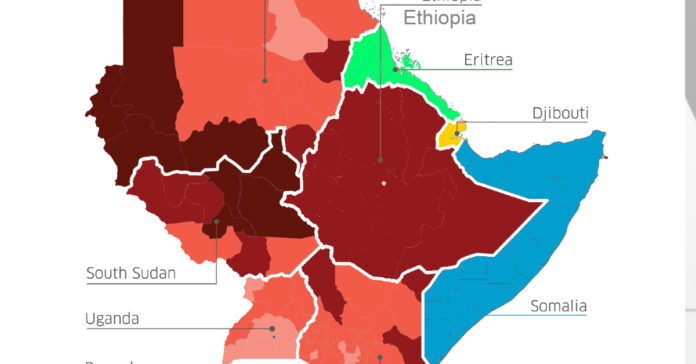In a series of recent interviews aired by Ethiopian State Television, Prime Minister Abiy Ahmed once again lamented what he calls Ethiopia’s “loss” of a seaport. As an Eritrean, I find it necessary to respond to this narrative—not because it is new, but because it is being repeated with growing insistence, threatening to reshape public perception and potentially destabilize the Horn of Africa.
Regional cooperation and integration are essential for peace and development. But the Ethiopian Prime Minister’s narrative is not about collaboration; it is about historical distortion and territorial ambition. Worse, it appears to echo agendas dictated by foreign interests rather than genuine domestic priorities. This has been a recurring flaw of Ethiopian leadership since the end of World War II.
Ethiopia Never Owned a Seaport
Despite repeated claims, Ethiopia has never legally owned a seaport. During the 1952 UN-mandated federation with Eritrea, Ethiopia gained access to the ports of Massawa and Assab. But this access came through a federal arrangement, not ownership. When Ethiopia unilaterally dissolved the federation in 1962 and annexed Eritrea, it violated international law—specifically, UN General Assembly Resolution 390 (A) of 1952, which had established the federation.
Eritrea, which had been a distinct colonial entity under Italy, waged a 30-year war to reverse this illegal annexation. That war ended in 1991, and Eritrea’s independence was formally affirmed in a 1993 referendum overseen by the United Nations, in which 99.8% of voters chose sovereignty. Eritrea’s borders were drawn in accordance with colonial treaties—the recognized legal standard for territorial boundaries in Africa.
Ambiguity as Strategy
Prime Minister Abiy claims Ethiopia will pursue access to a seaport through “peaceful and legal means.” Yet he has never clarified what these legal means are. Is it through bilateral negotiation, regional trade agreements, leasing arrangements, or something more coercive, masked in the language of diplomacy?
This deliberate vagueness raises serious concerns. It blurs the line between peaceful intentions and veiled threats. And it reflects a deeper unwillingness to accept internationally recognized borders and the sovereign rights of neighboring states.
A Precedent Africa Cannot Afford
The notion that Ethiopia was unjustly “deprived” of a seaport sets a dangerous precedent. If historic grievances—especially those rooted in imperial or colonial control—are used to justify modern territorial claims, the borders of every African nation are at risk. That is precisely why the African Union, the United Nations, and other international bodies uphold the inviolability of borders drawn at independence.
The last time Ethiopia pursued this path, it led to war—and defeat. Eritrea did not “secede,” as some Ethiopian elites claim; it won back its sovereignty through a legitimate liberation struggle. That reality cannot be erased or revised.
The Way Forward: Partnership, Not Provocation
Ethiopia does not need to manufacture grievances over seaports. Instead, it should pursue access through trade, investment, and diplomatic engagement. Eritrea and other coastal nations have a shared interest in regional stability and economic integration. But such cooperation must be based on mutual respect—not historical revisionism or geopolitical pressure.
Conclusion
Eritrea is a sovereign, internationally recognized state with legally established borders. There is no legal framework, nor any ethical justification, that could compel it to cede territory—including its seaports. Attempts to do so by framing it as a historical injustice not only mislead the Ethiopian public but also risk reigniting conflict in a fragile region.
History should guide us, not be manipulated to serve political agendas. If Ethiopia is serious about peace and progress, it must abandon the myth of a “lost” seaport and embrace diplomacy grounded in fact and respect. The Horn of Africa deserves stability—not another chapter of avoidable confrontation.

